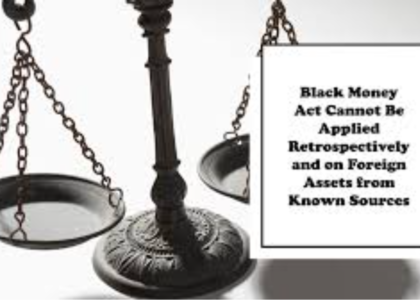Dear Readers,
I hope this finds you in good spirits!
This article highlights the action taken by India’s Revenue Departments to tackle black money and undisclosed foreign assets of High Net-Worth Individuals (HNIs) through enhanced scrutiny by the Enforcement Directorate and the Income Tax Department.
By way of this article, I would like to again emphasize on the importance of
- Proper structuring of transactions with regard to acquisition of foreign assets.
- Reporting thereof in the tax return
Non compliance with the reporting provisions have stringent penalties.
We trust that you will find this article enriching.
Regards,
Samir Mahajan
Unveiling Hidden Wealth: The Collaborative Efforts of the Enforcement Directorate and Income Tax Department in Tackling Black Money and Undisclosed Foreign Assets
In a decisive initiative to address the widespread challenges posed by black money and unreported assets, India’s revenue department is amplifying its efforts through the synchronized actions of two pivotal investigative agencies: The Enforcement Directorate (ED) and the Income Tax Department (ITD). This dual strategy is designed to unveil concealed wealth among High Net-Worth Individuals (HNIs) who possess foreign assets that do not correspond with tax return record.
The ED is concentrating its efforts on HNIs suspected of contravening the Foreign Exchange Management Act (FEMA), particularly in relation to undeclared properties held overseas through offshore corporations in tax havens such as the British Virgin Islands and Dubai. The agency may scrutinize whether these individuals have established offshore entities solely for the purpose of acquiring or managing foreign properties.
Concurrently, the Income Tax Department is pursuing its own investigation under the Black Money Act, targeting HNIs with undisclosed foreign bank accounts, cash-value insurance policies, and various other financial interests abroad. The tax department is looking to leverage its internal databases to identify inconsistencies between reported and actual foreign assets, dispatching inquiries to those whose declarations raise concerns. This intensified scrutiny follows a special disclosure window provided by the Income Tax Department, which closed on December 31 of the previous year. During this period, HNIs were encouraged to voluntarily declare foreign assets, with the caution that failure to comply could result in substantial penalties of up to 10 lakhs.
The collaboration between the ED and ITD, bolstered by the provisions of the Prevention of Money Laundering Act (PMLA), adds another layer of complexity for HNIs with unreported foreign income and assets.
As these investigations progress, the financial landscape for HNIs is set to undergo significant transformation. The outcomes of these actions will not only reveal the extent of undeclared assets that can be repatriated but also the additional revenue that may be generated for the nation. This vigorous enforcement strategy heralds a new era of financial accountability, where transparency and adherence to regulations are of utmost importance.
This ongoing investigations by the ED and the Income Tax Department into black money and unreported foreign assets highlight the critical need for compliance among High Net-Worth Individuals (HNIs). Therefore, it is imperative for those with foreign assets to fully grasp the ramifications of the Black Money Act (BMA), which imposes a 30% tax on undisclosed income and assets, along with severe penalties and the potential for criminal prosecution for non-disclosure. Taxpayers must accurately report foreign assets in their income tax returns, particularly in Schedule FA, to avert significant repercussions.
Proactive self-disclosure options, such as filing revised returns can help mitigate penalties. Engaging with tax professionals is highly advisable to navigate the complexities of compliance and ensure meticulous documentation of foreign assets. In this era of heightened scrutiny, taking decisive action to adhere to regulations is essential for safeguarding wealth and avoiding legal entanglements.





